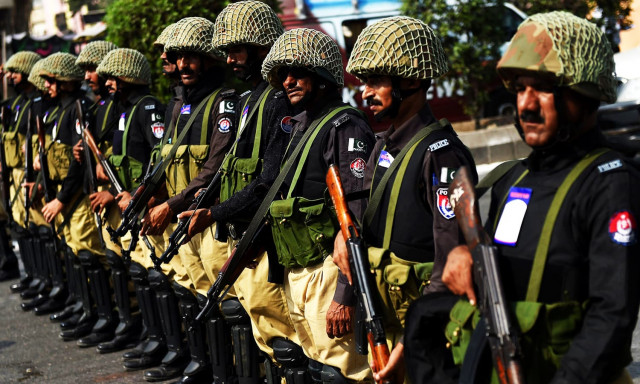SHC empowers IGPs in managing police affairs
Issues 38-page judgment on civil society's appeal to keep politics out of policing

The Sindh High Court (SHC) has empowered the inspector general of police to manage the policing affairs while lowering the authority of the province’s chief executive ¬ the chief minister ¬ over police affairs.
Noting that the law on the subject of policing in the province has remained in a state of flux, SHC gave a detailed judgment of 38 pages in response to the civil society’s appeal to keep politics out of the police department.
The bench stated that the three petitions at hand pertain to the Police Order 2002 (the "Police Order"), as revived vide the Sindh (Repeal of the Police Act, 1861 and Revival of Police Order, 2002) (Amendment) Act, 2019 (the "Amendment Act") promulgated by the Provincial Assembly of Sindh on 26.06.2019, and have been brought by the respective petitioners in their capacity as concerned citizens or NGOs as a matter of public interest.
As the somewhat convoluted title of the Amendment Act reflects, the law on the subject of policing in the province has remained in a state of flux, with the Police Act, 1861 (the "Police Act") and Police Order having interchangeably held the field from time to time.
The written ruling declares that the IG of Police will complete the tenure of his post and cannot be transferred before three years have passed.
If the transfer is required, it should be as per the guidelines established by the Supreme Court in the Anita Tarab case. For appointments to a variety of basic positions, including DIG in the police force, IGP Sindh may contact the Chief Minister.
The IGP will send a panel of three officers to the Chief Minister in the event of a dispute between the two. The Chief Minister has to choose one of these three names.
The consultative meeting with the provincial government is not required of the IGP to attend. The provincial legislation permits the appointment of an expert inside the police department, but only as a support person.
The IGP Sindh will have the discretion whether to use or not the services of an expert on any matter. Moreover, no expert will be able to impede IGP’s and other officials’ efforts.
The Chief Minister’s consent was necessary for the appointment of the DIG under Section 15(1) of the Police Order, which the court invalidated.
The meeting of the Public Safety Commission is not held regularly to review the performance of the police department, the court observed. The Public Safety Commission should be made active and required to convene a meeting once a month


















COMMENTS
Comments are moderated and generally will be posted if they are on-topic and not abusive.
For more information, please see our Comments FAQ